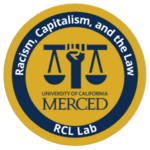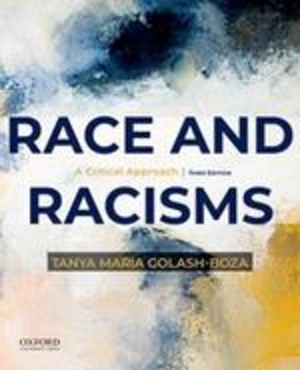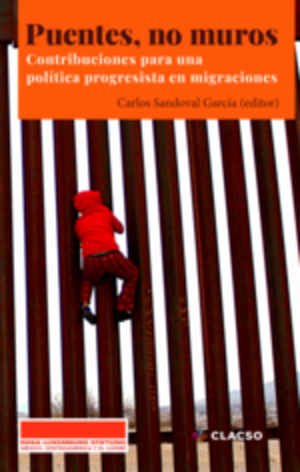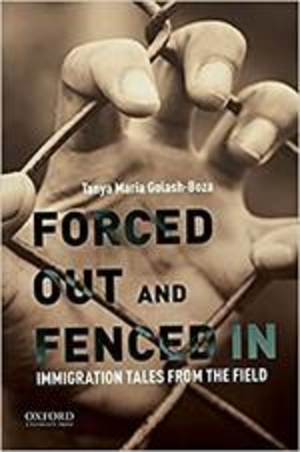In W.E.B. Du Bois’ Souls of Black Folk, he argued that the problem of the 20th century in the United States was the problem of the color line. Given that de facto and explicit racial discrimination persist, anti-immigrant rhetoric is intensifying, and legal status has become more salient, we argue Du Boisian theory remains relevant for understanding social and political cleavages in the 21st century United States. The intersection of race, ethnicity, and legal status or “racialized legal status” represents a new variation of Du Bois’ “color line,” due to how these statuses generate cumulative disadvantages and exclusion for citizens and immigrants of color, particularly the undocumented. We begin with a review of Du Bois’ double consciousness theory, highlighting the marginalization of African Americans. Next, we apply double consciousness to the 21st century U.S. context to empirically demonstrate parallels between 20th century African Americans and the marginalization faced today by people of color. We close with a discussion about how double consciousness enhances our understanding of citizenship and has also generated agency for people of color fighting for socio-political inclusion in the contemporary United States.
Publications
2021
Race and Racisms: A Critical Approach, Third Edition, engages students in significant—and timely—questions related to racial dynamics in the U.S. and around the world. Written in accessible, straightforward language, the book discusses and critically analyzes cutting-edge scholarship in the field. Organized into topics and concepts rather than discrete racial groups, the text addresses: * How and when the idea of race was created and developed* How structural racism has worked historically to reproduce inequality* How we have a society rampant with racial inequality though most people do not consider themselves to be racist* How race, class, and gender work together to create inequality and identities* How immigration policy in the United States has been racialized* How racial justice could be imagined and realized Centrally focused on racial dynamics, Race and Racisms, Third Edition, incorporates an intersectional perspective, discussing the intersections of racism, patriarchy, and capitalism.
2020
More than six million people have been deported from the United States since 1996. The Dominican Republic is one of the top ten countries to which deportees are sent. Most scholarship on deportation focuses on the challenges deportees face post-deportation. There is also a long history of scholarship on how migrants draw from social, human and financial capital to integrate into host societies. This article thus asks what forms of capital are useful for deportees’ re-integration and focuses on the forms of capital deportees draw from to survive in the aftermath of deportation. An analysis of 60 in-depth interviews with Dominican deportees reveals how deportees’ combination of limited human capital, fractured social capital and positive psychological capital assists in their re-integration. Results also show that access to employment is not only an important step in social and economic integration, but that it also helps deportees to achieve emotional stability.
Die Forschung zu Abschiebungen verdeutlicht, dass diese leidvoll sind und schwerwiegende Folgen für Betroffene und ihre Familienangehörigen haben. Es gibt jedoch relativ wenige Studien darüber, wie sich die Erfahrungen zwischen verschiedenen nationalen Kontexten unterscheiden. Ausgehend von 81 Interviews mit dominikanischen und brasilianischen Abgeschobenen argumentieren wir, dass ihre Reintegration von Makro-, Meso- und Mikrofaktoren beeinflusst wird. Darunter zählen individuelle Merkmale wie kulturelle Anpassung und Humankapital (mikro), nationale und transnationale Bindungen (meso) sowie soziale und wirtschaftlichen Bedingungen, unter denen Abgeschobene aufgenommen werden (makro). Das Forschungsdesign des vorliegenden Artikels arbeitet diese Faktoren heraus und zeigt, wie sie voneinander abhängen. Je ungünstiger sich der Aufnahmekontext auf die Reintegration auswirkt, desto relevanter werden Faktoren auf der Meso- und Mikroebene. Dominikanische Abgeschobene werden von Regierung und Gesellschaft stigmatisiert und sind daher mehr auf transnationale Bindungen und ihre eigene Resilienz angewiesen. Im Gegensatz dazu stoßen brasilianische Deportierte auf einen weniger feindlichen Kontext, was bedeutet, dass sich Personen mit lokalen Bindungen und Humankapital einfacher reintegrieren. Scholarship on deportation makes it clear that deportations are painful and have severe consequences for deportees and their family members. However, there is relatively little scholarship on how post-deportation experiences vary from one national context to another. Drawing on 81 interviews with Dominican and Brazilian deportees, we argue that post-deportation experiences are shaped by macro-, meso-, and micro-level factors. Micro-level factors include individual characteristics, such as acculturation and human capital. Meso-level factors include national and transnational ties. Macro-level factors include the context of reception – the social and economic conditions into which deportees are received. We put forward a framework that both highlights these factors and shows how they are interdependent. The more adverse the context of reception, the more likely that deported people rely on other factors, such as transnational ties or human capital. Dominican deportees face stigmatisation from government and society, and, thus, depend more on transnational ties and their own resilience. In contrast, Brazilian deportees encounter a friendlier context, meaning that those deportees with more local ties and human capital are able to reintegrate with fewer challenges.
2019
When the local police cooperate with immigration authorities, arrest on suspicion of any crime can lead to deportation.
Deportees’ reintegration is shaped by the contexts of reception in their countries of origin and the strength of their ties to the United States. For some, the deprivation and isolation of deportation is akin to a death sentence.
Deportations from the United States reached record highs in the aftermath of the Great Recession (2007-2009). At the peak of this wave of deportations, over 400,000 people were deported from the United States—as many in 1 year as in the entire decade of the 1980s. The majority of these deportees have U.S. citizen family members, nearly all of whom continue to live in the United States. Over 90% of these deportees are men, and nearly all are sent to Latin America, creating gendered and raced consequences for specific communities. This article draws from interviews with 27 people from California who experienced the deportation of a family member to provide insight into the effects of deportation on these families. This article builds on scholarship on the collateral consequences of incarceration to enhance our understanding of the collateral consequences of deportation. The findings reveal that family members face short, medium, and long-term consequences in the aftermath of a deportation and that many adolescents are forced to make an abrupt transition to adulthood when one or both of their parents is deported.
Ten years after sociologist Mary Romero lamented the “ideological and theoretical gulf between immigration research and the sociology of race,” researchers have begun to bridge this theoretical gulf by centering critical race theory in studies of migration. Building on these analyses, this article argues that migration flows and immigrant incorporation are shaped not only by white supremacy but also by patriarchy and global capitalism. Insofar as migrants, predominantly from the Global South, are usually racialized as non-white, and come to work in a labor market shaped by exploitation, oppression, and patriarchy, it is critical to think of migrant flows and settlement within the context of what bell hooks describes as a White supremacist capitalist patriarchy. We draw from examples from our research with a broad spectrum of migrants and their children to elucidate how these three systems of oppression shape the experiences of migrants.
2018
Former President Barack Obama’s administration oversaw three million deportations-far more than any previous President, and more than the sum total of all deportations prior to 1997. President Donald Trump has promised to surpass these record numbers of deportations. With mass deportation constantly in the news, students crave a deeper understanding of how we have arrived at this particular historical moment. This collection of powerful essays-written by leading scholars in migration studies-puts a human face on mass deportation by telling the stories of people bearing the brunt of immigration law enforcement. Each narrative in Forced Out and Fenced In: Immigration Tales From the Field centers on a person or a small group of people and places their story within the broader socio-legal and historical context. The authors weave the relevant historical, political, and socio-legal analysis throughout each essay, yet the narrative remains the most important element in each piece. The book is ideal for courses on immigration in sociology, anthropology, political science, law and society, ethnic studies, Latino studies, history, geography, and American studies.




